‘FACE’ Review: Jimin’s reflection with his identity
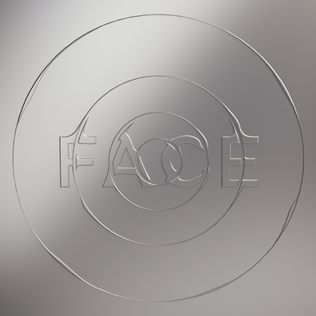
The album cover of “FACE,” depicting four ripples emerging from the center. As ripples disrupt reflection in water, it symbolizes how Jimin’s image and identity has also been misconstrued over the course of his fame.
Lights off. Headphones on. Eyes closed.
That’s the ritual I perform every single time a new album releases, especially when it comes to the seven-member South Korean group, BTS. Except this time, I sat in anticipation for only one member: Park Jimin. Intense colors and clashing sound waves engulfed my surroundings upon the first listen of his debut album, “FACE.” Not only did Jimin cause my body to levitate, but he expertly redefined his name as an artist through his iconic first release.
On March 24, Jimin shared his solo debut album with the world, following the hiatus of BTS due to mandatory military service in South Korea. Although his popularity forecasted huge success (being part of the world’s biggest K-Pop band), Jimin managed to take things a step further becoming the first South Korean solo artist to achieve No. 1 for his track, “Like Crazy,” on Billboard’s Hot 100. Further proving his impact as a global artist, he racked up over one million sales during the first week of his album’s release. Besides statistical success, millions of fans around the world, including myself, were shocked by the creative direction Jimin took for “FACE.” Known for harnessing a gentle, alluring voice, he decided to do a one-eighty and entered his emo, trap era. Hand-crafted to perfection, “FACE” is an honest confession about Jimin’s personal struggles, such as loneliness and defeat, which were fueled by isolation during the COVID pandemic.
After diving deep into the six different tracks on Jimin’s album, “FACE,” a parallelism formed between his emotions and the five stages of grief: denial, anger, bargaining, depression and acceptance.
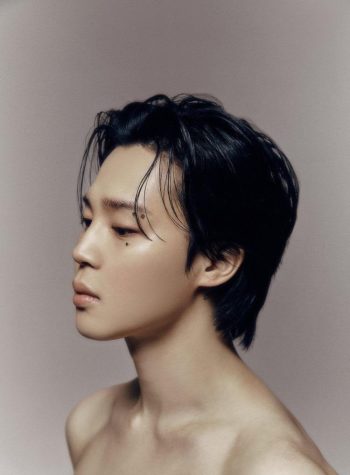
Face-Off
Titled “Face-Off,” Jimin opens his album with pure denial and anger. As soon as I began the track, a playful tune filled my ears, and I immediately recognized it as the classic clown theme. This addition indicated that he suffered a moment of naivety, as people often took advantage of him for his wealth and fame. Later, the song shifts into a darker, more rebellious tone with hard-hitting vocals and lyrics, juxtaposing the jesting intro. The repetition of “break it down” in the chorus and aggrieved spouts about ending relationships conveyed a dramatic effect, unlike Jimin’s past track “Serendipity,” which exuded love and lightness. Having this track open the album helped listeners and myself understand the exhaustion and turmoil he experienced throughout his career, setting up his narrative with a solemn tone.
Interlude: Dive
Following such an aggressive song, Jimin transitions with an interlude titled “Dive.” The instrumental track served as a breath of fresh air and evoked a sense of floating and falling simultaneously for its listener. With violin and cello notes backing the track, sounds of breathing enter the field, embodying the exhaustion Jimin has endured his entire life. An audio clip of cheers cuts through, and we hear Jimin introducing himself from the last BTS concert. As though reminiscing about the past pains him, we finally hear him pouring a glass of alcohol, taking two large gulps. This interlude served as the bridge between the first two emotions and the next stage: bargaining.
Like Crazy
There are no words to describe how much this song altered the course of my life. My way of living. My brain chemistry. “Like Crazy” was released as the title track of the album, rightfully so, and represented the third stage of grief 一 bargaining. The music video was set in a club, similar to the overall tone of the song, and depicts Jimin’s internal battle between his femininity and masculinity. He has a recurring reflection with a woman (shown through the choreography), further guiding the idea that he’s recognized his true, inner core.
Robert Mapplethorpe, a famous queer photographer, is also featured on Jimin’s pants in the music video, indicating how he also discovered more fluidity in his sexuality. Because of the struggles to find his identity, Jimin desires to be “lost in the lights” and bargain, rather than facing these complex problems head-on. I believe that as a South Korean artist, Jimin powerfully broke the barrier surrounding these “controversial” topics, since they’re rarely discussed in a widely conservative country like South Korea. Comparing it to his first solo song in BTS, titled “Lie,” he continues to be honest about his journey of accepting his identity. Not only did this track break records, but it also conjured goosebumps with every listen.
Alone
During quarantine, everyone was impacted by the feeling of isolation, even someone as famous as Jimin. In this track, “Alone,” Jimin confesses how loneliness consumed him intensely for a period of his life, representing the depression stage. His nights were “cold and lonely” as he continued the theme of drinking alone to drown out his worries. A melancholic and solemn feeling wrapped around me as I listened to this track, enchanted by his beautiful vocals as they masked his pain. Personally, I deeply resonated with this track, as I often found ways to distract myself from the loneliness that the pandemic sustained. It was eye-opening to see how much “Alone” humanized Jimin and separated him from the perfect facade idols build.
Set Me Free Pt. 2
Goosebumps were invented specifically for this song. One second in and you are met with a god-like choir, blaring horns and Jimin aggressively rapping. “Set Me Free Pt.2” was Jimin’s final callout to his antis and internal battles with himself, reaching the last stage: acceptance. Desiring to free himself from his past chains, he sings the lyrics “set me free” throughout the song, as though demanding his freedom. In addition to his vocals and a choir acting as his source of power, Jimin introduces a trap-inspired rap in the middle of the song, catching everyone off guard, since he never held a rap position in BTS. The music video for this track was choreography-oriented, unlike “Like Crazy,” showcasing Jimin’s expertise in dance. Jimin ultimately pays homage to his past to come full circle, such as adding the choreography for “Lie” and the lyrics “gotta go insane to stay sane” from “ON,” a BTS title track. Ending with a bang, Jimin solidifies his first album successfully.
Letter
This track was a secret gift for ARMY, BTS’s fanbase, and can only be listened to on the physical CD. Similar to “Promise,” one of Jimin’s past songs, he creates an intimate connection with fans, this time discussing his uncertainties about the future and unconditional love for them. Through the lyrics “to you who saw me greater than my little self,” Jimin conveys gratitude towards his fans for uplifting him in times when his low self-esteem consumed his mind. It was a heartfelt addition to the album, and let’s be real, it brought me to tears.

By creating an album backed by complex emotions, relatable experiences and hints of dynamic genres, Jimin stepped into the music industry with a will to alter the landscape. Bravely discussing his identity, inner struggles and coping mechanisms, the experienced was not far from your usual BTS songs; however, it had a different musical texture from the other members who’ve gone solo: RM, Jin, Suga and J-Hope. While the other members have adopted one central genre in their albums, such as old school hip-hop in J-Hope’s “Jack in the Box,” Jimin experimented with a musical soup of synth-pop, hip-hop, ballad, trap soul and the five stages of grief. Jimin’s album “FACE” was just as unique as his talent, and I’m proud to say I am an ARMY because of him.
Your donation will support the student journalists of Carnegie Vanguard High School. Your contribution will allow us to cover our annual website hosting costs and fund field trips, competition fees, and equipment. We appreciate your support!

Nina Nguyen connects with the color orange on an emotional level and goes to a great extent to make it her whole personality. When it comes to music, Nina...

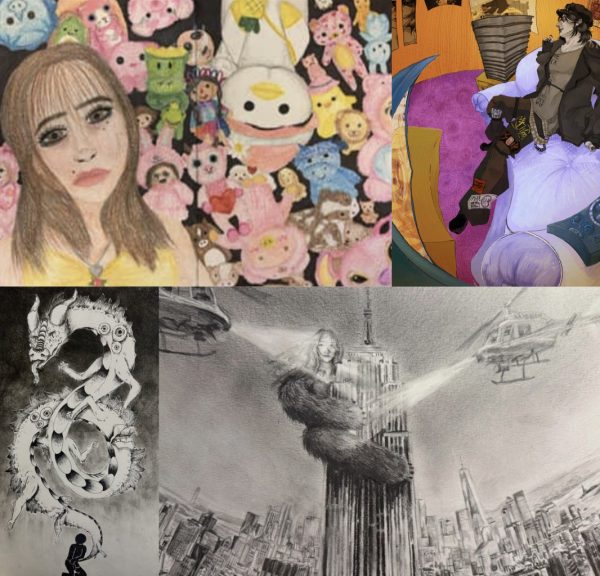
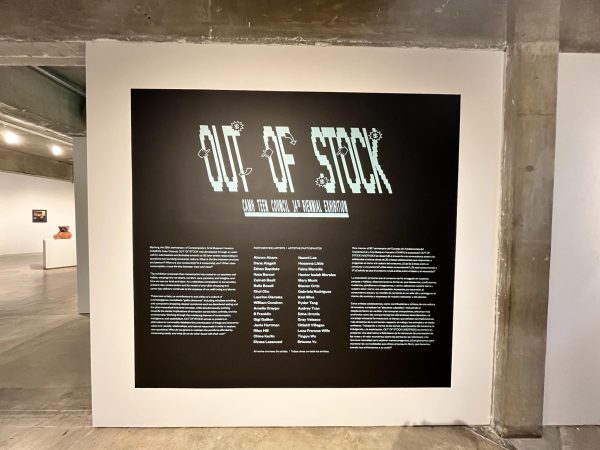

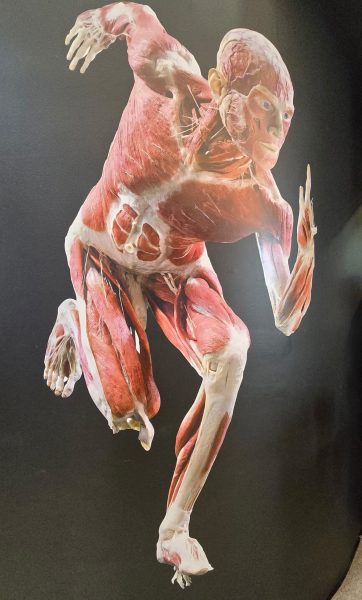

Chilli • Apr 26, 2023 at 8:12 am
Your review was lovely. It explained Jimin’s works as a travel through expressions and it made me look at this album differently. I loved the album but didn’t quite “get it” clearly. Your insight made this easy. Thank you
Alice Oldmixon • Apr 25, 2023 at 10:05 am
Enjoyed reading your opinion on Face. Music, like art, are personal interpretations. I came away with a different take of Like Crazy. I didn’t hear it as a declaration of coming to terms with identity (Your opinion gave the impression you were referring to sexuality) but rather a coming to terms with is this how I want to live my life. Particularly the phrase “I’m feeling so alive. Wasting time.” I’m 72 but I vividly recall myself in my 20’s in that same place. Getting drunk, stoned, and partying to exhaustion. Feeling alive but lost at the same time. Adulting can be a difficult process and everyone says Face is a take on Jimin’s personal journey but what I see is rather a window into what every young person of any generation goes through.
Catherine Hu • Apr 24, 2023 at 10:19 am
I LOVE the imagery in your article and the feel to your wording